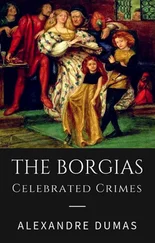On December 18, the day before his return, a proclamation was read out in Rome ‘to tell all the inhabitants to be present tomorrow on the return of His Holiness,’ reported Burchard. ‘Each must clean the area of street in front of his house, hang out all their tapestries and other items, and do all necessary to honour the Pope, as is his due.’
— CHAPTER 6 — The French in Rome
‘TWICE OUR GREAT GUNS WERE READY TO FIRE ON CASTEL SANT’ANGELO’
FRANCESCO GUICCIARDINI described Italy as ‘never having enjoyed such prosperity or known so favourable a situation as that in which it found itself in the years immediately before and after 1490.’ He continued:
The greatest peace and tranquillity reigned everywhere… Not only did Italy abound in inhabitants, merchandise and riches, but she was also highly renowned for the magnificence of many princes, for the splendour of so many most noble and beautiful cities, as the seat and majesty of religion, and flourishing with men most skilful in the administration of public affairs and most nobly talented in all disciplines and distinguished and industrious in all the arts. Nor was Italy lacking in military glory according to the standards of the time, and adorned with so many gifts that she deservedly held a celebrated name and a reputation among all the nations.
Had Guicciardini described Italy as it was to become a few years later, during the pontificate of Alexander VI, he would have painted a less comforting picture. The quarrel between King Ferrante I of Naples and Ludovico Sforza of Milan was to have far wider political implications, involving France and Spain, each of which laid claim to Naples, and it now brought the threat of imminent war. For, in order to dispose of his enemy, Ludovico Sforza decided to suggest to King Charles VIII of France that he should invade Italy to assert his claim to Naples, as heir to the rights of the House of Anjou, which had been ousted from Naples by Ferrante I’s father, Alfonso of Aragon, some fifty years earlier.
Charles VIII’s belief that he was the rightful king of Naples had been ‘instilled in him from an early age, so that it was almost an innate instinct, and it had been nourished under the guidance of several close advisers,’ so Guicciardini said, and these men played on his vanity and his youthful inexperience, suggesting that, by enforcing his claim to the kingdom, he would ‘surpass the glory of his ancestors,’ and that, having taken Naples, it would be just a simple step to seize the Holy Land from the Turks.
On January 25, 1494, Ferrante I died, ‘without the light of grace, without the cross and without God,’ as Burchard stated. ‘On 21 January he visited the baths at Tripergole because he did not feel well’ — Tripergole, once famous for its sulphur baths, was buried after a volcanic eruption covered it with lava in 1538. On the following day Ferrante ‘returned to Naples and, on dismounting from his horse in the courtyard of Castel Nuovo, suffered a fainting fit; three days later he died, without confession and without receiving the sacraments.’ This, so it seemed, was his own choice: ‘Although his confessor, a Franciscan friar, came into the bedroom and, standing before him, urged him to repent of his sins,’ Ferrante I refused to do so. ‘The friar, it was said, did not see a single sign of repentance from the King.’
Ferrante I died at the age of seventy, loathed by his subjects for the cruel way he had exercised his authority. There was, however, little talk of poison; many in Italy thought it likely he had died of misery at the prospect of seeing his kingdom seized by the powerful armies of Charles VIII, which were poised to leave France on their long march to conquer Naples.
Charles VIII was just twenty-four years old, and he was the ‘ugliest man’ that one observer had ever seen, ‘in all [his] days — tiny, deformed with the most appalling face that ever man had.’ The chronicler Philippe de Commynes added that ‘neither his treasury, nor his understanding, nor his preparations were sufficient for such an important enterprise as the conquest of Naples.’ Commynes believed he never said a word to anyone that could ‘in reason, cause displeasure.’ This unprepossessing but adventurous young monarch also had the most grandiose ideas; he was contemplating a march upon Naples not only to take possession of his ancestor’s throne but also to go on from there to conquer Jerusalem and, on the way, to reform the corrupt papacy of Alexander VI.
In Italy, where the forthcoming conflict now seemed inevitable, reactions varied. Ludovico Sforza promised his support, as did his father-in-law, the Duke of Ferrara, and his cousin Giovanni Sforza, husband of Lucrezia and Lord of Pesaro, who sent details of papal troop deployments to Milan with the warning that ‘if any word of what I am doing is known, I will be in the greatest danger.’ The Republic of Venice remained neutral; Florence and the Papal States were both ill-equipped to fight a war; the Neapolitan army was a more formidable force than any other in Italy, but it had no hope of halting the French advance on its own.
The issue had become even more complicated for Alexander VI since Ferrante I’s death in January and the succession of Alfonso II as the new king. The pope now faced a stark choice — Naples was a papal fief and he had either to crown Alfonso II or to agree to the demands of Charles VIII to invest him as the rightful ruler.
Throughout March Alexander VI sought to placate both sides; he sent Charles VIII the papal rose, a mark of his favour, but when the ambassadors of Alfonso II arrived in Rome, their French counterparts made a point, as they had been ordered to do, of pointedly refusing to meet them. By Easter, which fell on March 30 that year, it was clear that Alexander VI had decided in favour of his alliance with Naples. At the Great Mass in St Peter’s on Easter Sunday, led by the pope in person, it was the cardinal of Naples who acted as his assistant. ‘The Pope gave communion to all the cardinal-deacons, except for the Cardinal of Valencia, who was absent,’ noted Johannes Burchard, using the title by which Cesare had chosen to be known in the college, and ‘afterwards the Lance of Christ was shown twice to the people and the Vernicle three times.’
On the Tuesday after Easter, Alexander VI went to the Church of Santa Maria sopra Minerva to hear Mass, which was celebrated by the bishop of Concordia. Cardinal Ascanio Sforza made a witty aside, recorded by Burchard, to the effect that ‘when the Pope is in concord with the King of Naples, he asks the Bishop of Concordia to celebrate the mass; the Pope, who overheard this remark, asked me to tell Ascanio that his choice had not been premeditated but that it had been coincidence.’ Alexander VI then quipped, much to the discomfiture of his vice-chancellor, that ‘when there is peace between His Holiness and Ludovico Sforza,’ the pope would ‘have mass celebrated by the Bishop of Pace’ — pace is the Italian for peace and also the Latin name for the Spanish city of Badajoz.
The college of cardinals was deeply divided by the quarrel, Alexander VI’s Spanish cardinals firmly opposing the French party, led by Cardinal Giuliano della Rovere, the pope’s inveterate enemy, and those loyal to Milan, notably Ascanio Sforza. Alexander VI was even approached by one of della Rovere’s supporters, who threatened him bluntly that if he did not agree to the crowning of Charles VIII as king of Naples, it would no doubt become necessary to summon a council to investigate the charge that the pope had been guilty of simony in securing his election to high office. Whether or not persuaded by this threat, Alexander VI was induced to agree that Charles VIII should be crowned in Naples when the French army entered the city.
Читать дальше











